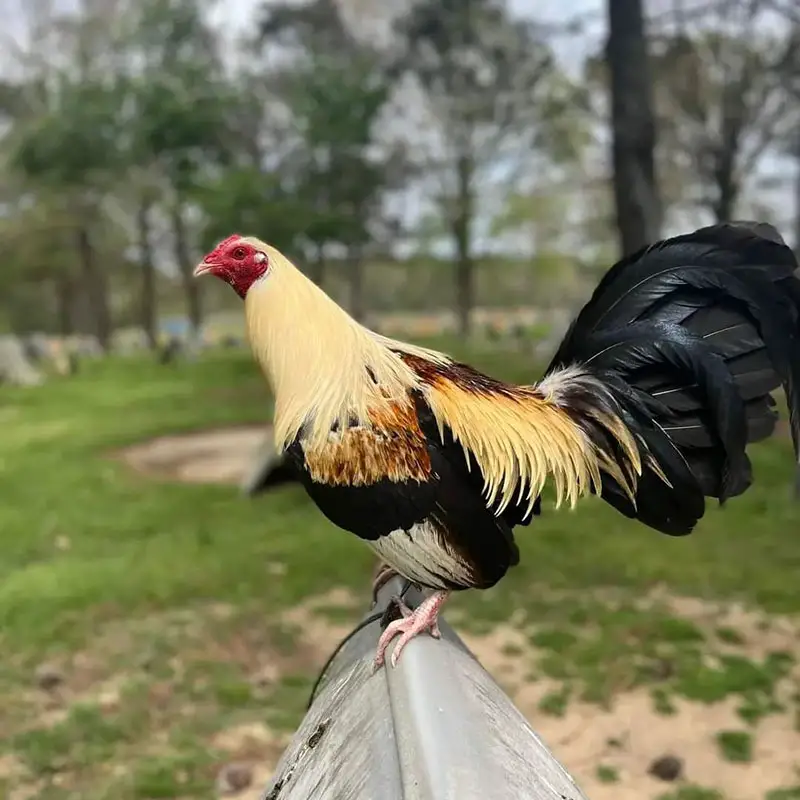Peering into a bird’s nest and finding broken eggs and shells scattered on the ground can be unsettling. If you’ve witnessed this and wondered why birds occasionally eject their eggs from the nest, you’re not alone.
In simple terms, birds typically discard eggs that won’t hatch or contain dead embryos. This behavior serves to conserve resources for nurturing healthy chicks.
This comprehensive exploration delves into the reasons behind this unique bird behavior. We’ll scrutinize how birds assess egg viability, the benefits of removing eggs for the rest of the clutch, how some species manipulate sex ratios through egg ejection, and guidance on what to do if you stumble upon rejected eggs.
Assessing Egg Viability:
When birds toss eggs out of the nest, it’s often an instinctual behavior aimed at ensuring the overall health and survival of the nest. A crucial factor in deciding to remove an egg is its viability.
Birds employ various mechanisms to assess the viability of their eggs, including detecting infertile eggs and identifying embryo death.
Detecting Infertile Eggs:
Birds gauge the viability of their eggs by determining if they are infertile. This is particularly critical for species laying numerous eggs, allowing them to invest energy and resources wisely. Birds showcase a remarkable ability to sense fertility through their sense of smell or the eggshell’s appearance. Some can detect the absence of a developing embryo by smelling the egg, while others identify infertile eggs based on color or texture.
Research published in the Journal of Avian Biology reveals that certain bird species discriminate between fertile and infertile eggs based on differences in volatile compounds emitted by the eggs. This fascinating ability enables birds to selectively remove infertile eggs, ensuring that only viable ones receive the necessary attention and care.
Identifying Embryo Death:
Birds also possess the ability to identify embryo death in their eggs, crucial to prevent diseases or genetic abnormalities within the nest. By sensing changes in temperature and chemical composition within the egg, birds can quickly remove non-viable eggs, reducing the risk of contamination and increasing the chances of successful hatching for the remaining eggs.
Research conducted by the Royal Society for the Protection of Birds on species like the common tern indicates that birds can sense changes in temperature and chemical composition within the egg, indicative of embryo death. This remarkable ability allows birds to focus their energy on nurturing healthy eggs.
Conserving Resources:
One primary reason behind the seemingly peculiar behavior of birds throwing eggs out of the nest is the need to conserve resources. Birds, being intelligent creatures, have evolved to make efficient use of their limited resources to ensure the survival of their offspring.
Brood Reduction:
Birds expel eggs as part of brood reduction, a strategy employed by many species to ensure the survival of the strongest offspring. By removing some eggs, parents allocate more resources to the remaining ones, increasing their chances of survival. This strategic approach results in a higher overall reproductive success.
Did you know? Brood reduction has been observed in various bird species, including raptors like eagles and falcons, as well as passerines like sparrows and finches.
Freeing Up Space:
Another reason birds may throw eggs out is to free up space in nests, which are typically small, especially for cavity-nesting species. By removing excess eggs, birds create more room for the remaining ones to grow and develop properly, ensuring better ventilation and reducing the risk of overcrowding.
Fun fact: Some bird species, like the Common Murre, lay eggs on narrow cliff ledges. Parents may push out non-viable or unhealthy eggs to create more space for the remaining ones.
It’s essential to note that not all bird species throw eggs out of the nest. This behavior is more common in species laying multiple eggs in a single clutch. Each species has unique strategies for resource allocation and ensuring their young’s survival. Throwing eggs out is just one fascinating adaptation to their environment.
For more bird behavior and conservation information, you can visit: Audubon
Influencing Sex Ratios:
Birds also throw eggs out to influence the sex ratios of their offspring, especially in species with temperature-dependent sex determination (TSD).
TSD Explained: In species with TSD, the temperature during egg incubation decides the offspring’s sex. For example, lower temperatures result in males, and higher temperatures result in females. Birds may throw eggs to regulate egg temperature, manipulating the sex ratios of their offspring.
This behavior allows birds to control the overall nest temperature by removing eggs in areas that are too warm or too cold, depending on the desired sex ratio. They can adjust the number of males or females based on various ecological or social factors.
Facultative Manipulation:
Some bird species can facultatively manipulate the sex ratios of their offspring based on environmental conditions. Throwing out eggs allows birds to fine-tune the sex ratio, maximizing reproductive success in a particular environment.
For example, if resources are scarce, a bird may throw out eggs of one sex to ensure the remaining offspring have a better chance of survival. This strategic decision helps parent birds optimize their investment in reproduction, increasing their offspring’s overall fitness.
It’s important to note that not all bird species engage in egg-throwing behavior. This behavior is more commonly observed in species with TSD or facultative sex ratio manipulation capabilities. The specific reasons for egg-throwing may vary among different bird species, requiring further research to fully understand the underlying mechanisms and evolutionary significance.
What To Do If You Find Ejected Eggs: Understanding Bird Behavior:
Stumbling upon a nest with ejected eggs can be alarming, but it’s crucial to understand that this behavior is not uncommon in the avian world. Birds throw eggs out of nests for various reasons, including:
- Protecting the nest from predators
- Removing infertile or damaged eggs
- Creating more space for healthier eggs
- Reducing competition among siblings
By ejecting eggs, birds make calculated decisions to increase the chances of a successful breeding season.
Leave the Eggs Alone:
If you find ejected eggs, it’s best not to intervene. Wild birds are protected by laws in many countries, making it illegal to disturb their nests or eggs without proper permits. Interfering with wildlife’s natural processes can disrupt ecosystems.
Observe from a Distance:
Instead of investigating closely, observe the nest from a safe distance. This allows you to learn more about the birds’ behavior and might give you a chance to see them return to the nest. Keeping a safe distance ensures you don’t unintentionally stress or harm the birds.
Report Your Observation:
If you come across ejected eggs, report your observation to local birdwatching or wildlife organizations. Your report can contribute to scientific knowledge about bird behavior and population trends.
Encourage Bird-friendly Environments:
Support bird populations by creating bird-friendly spaces in your own backyard. Plant native trees and shrubs for food and shelter, install bird feeders and birdbaths to attract various species. By providing a welcoming habitat, you help birds thrive and may offer alternative nesting sites.
Remember, birds have evolved over millions of years to raise their young successfully. While finding thrown-out eggs might be disconcerting, it’s best to respect their natural behavior and let them continue their reproductive process without interference.
Final Thoughts
Discovering cracked and rejected eggs underneath a bird’s nest can be perplexing. However, this unusual behavior is often a bird’s strategy to optimize its reproductive success. By expelling certain eggs, birds conserve resources and invest more in healthy offspring.
Though ejecting eggs might seem harsh, it’s an adaptation ensuring the survival of the fittest chicks. Understanding and appreciating these aspects of bird behavior contribute to our knowledge of the natural world.





